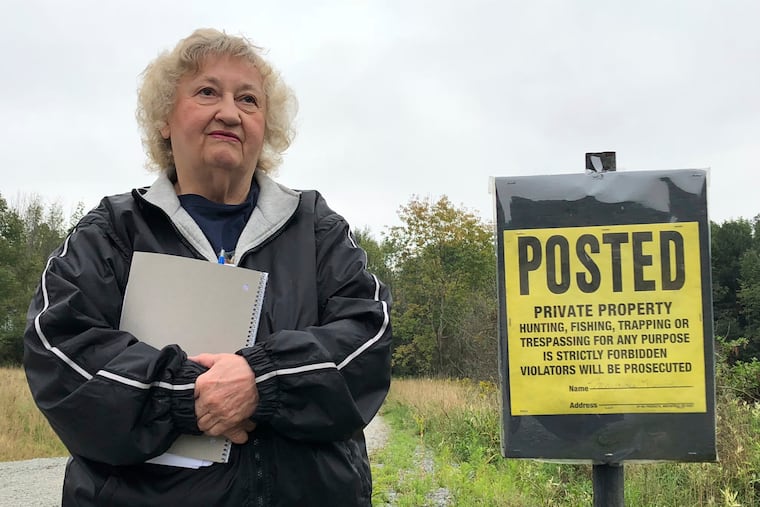Pennsylvania woman wins U.S. Supreme Court property rights case
Rose Mary Knick tried to bring a lawsuit in federal court after her town passed an ordinance that requires anyone with a cemetery on their land to open it to the public during the day.

WASHINGTON — The Supreme Court ruled Friday to give citizens another way to sue when they believe states and local governments have harmed their property rights, handing a victory to a Pennsylvania woman fighting her town over a cemetery ordinance.
The high court ruled 5-4 along ideological lines in favor of Rose Mary Knick. She tried to bring a lawsuit in federal court after her town passed an ordinance that requires anyone with a cemetery on their land to open it to the public during the day.
A town official found several grave markers on Knick's farmland in eastern Pennsylvania's Lackawanna County, but she disputes whether there's actually a small, family cemetery on her 90-acre property.
Regardless, Knick argued that in passing the ordinance in 2012 and applying it to her, local officials were in essence taking her property and opening it to the public without paying her for it.
A federal court threw out Knick's case, ruling she had to go to state court first. But after the Supreme Court's ruling, Knick will be able to pursue her case in federal court.
Property owners like Knick would often prefer to pursue property rights disputes in federal court, Knick's lawyers have said, because they may view them as more neutral or objective than state courts, which are sometimes seen as being influenced by local politics. Local governments previously had the power to take a case like Knick's that was filed in state court and move it to federal court, but citizens didn't have the option to begin their cases in federal court.
A 1985 Supreme Court decision had effectively barred people with property rights claims like Knick's from going to federal court. The Supreme Court on Friday overruled that part of the decision, with Chief Justice John Roberts writing for himself and his four conservative colleagues that the earlier decision was "not just wrong" but its reasoning was "exceptionally ill founded."
The court's ruling means citizens will now have a choice about whether to go to state or federal courts.
Knick's attorney, J. David Breemer, said before the decision that a ruling in her favor would also lead to faster resolutions in similar cases.
"This decision is a very long time coming for Rose and other property owners who have had federal courtroom doors slammed shut in their faces whenever they seek compensation for a governmental taking of their private property," Breemer said in a statement.
The case is Knick v. Township of Scott, 17-647.